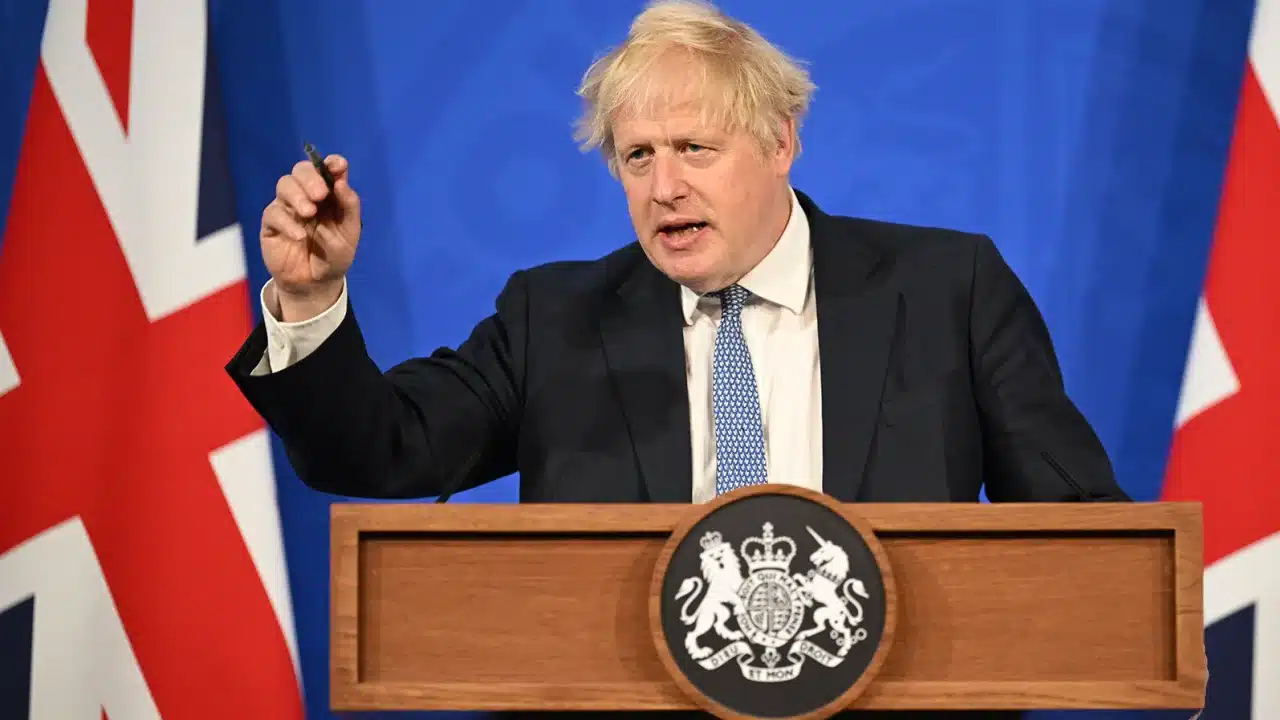In a shocking and ground-breaking report that blasts Johnson‘s behaviour and suggests he be denied a pass to enter the parliamentary estate, a parliamentary committee found that the former British prime minister intentionally misled lawmakers about violations of his own Covid-19 lockdown rules.
According to the committee’s report, Johnson “committed a serious contempt” of parliament when he claimed that rules were always followed after the so-called “Partygate” affair exposed unauthorised gatherings at Downing Street.
The conclusions essentially amount to a historic reprimand of a former prime minister who, after winning an overwhelming electoral victory less than four years ago, had his political career crumble under the weight of a number of scandals.
“The contempt was all the more serious because it was committed by the Prime Minister, the most senior member of the government,” the Privileges Committee wrote in its report, published Thursday. “There is no precedent for a Prime Minister having been found to have deliberately misled the House.”
“He misled the House on an issue of the greatest importance to the House and to the public, and did so repeatedly,” the members wrote, adding that Johnson also misled the committee when he presented evidence in his defense.
Johnson resigned as an MP in fury on Friday, days before the report’s publication, nullifying the committee’s recommendation that he be suspended for long enough to force a by-election in his constituency.
But the report added a further, damning recommendation in light of his resignation: that Johnson is denied a former member’s pass to enter parliament, a longstanding convention for ex-MPs.
It marks the end of a lengthy investigation by the committee – the majority of whom represent Johnson’s Conservative Party – that Johnson and some of his allies attacked as a “kangaroo court.”
But it may not end the Partygate saga. MPs must now vote to accept the report’s findings, a potentially embarrassing exercise certain to expose divisions between Johnson’s supporters in parliament and the current Prime Minister Rishi Sunak, who has sought to distance himself from Johnson in recent days.
The investigation’s focus was on Johnson’s conduct during the Covid-19 pandemic, when he was prime minister and found by police to have breached his own rules.
Unlike a police investigation and a separate parliamentary probe into the parties themselves, this inquest looked at whether Johnson knowingly misled lawmakers in the House of Commons when he reassured them that he was unaware of the parties.
Its findings were unanimous and unambiguous. “We think it highly unlikely on the balance of probabilities that Mr Johnson … could have genuinely believed at the time of his statements to the House that the Rules or Guidance were being complied with,” the report said.
The report also rebukes Johnson for his attacks on the committee’s impartiality, finding that he committed contempt of parliament on several more occasions when giving evidence and when he resigned as MP.
“This attack on a committee carrying out its remit from the democratically elected House itself amounts to an attack on our democratic institutions,” the committee wrote in its report, calling Johnson’s language “vitriolic” and “completely unacceptable.”
Had Johnson stayed on as a parliamentarian, the committee would have recommended a 90-day suspension from the Commons – a ban nine times the threshold that would force a sitting member of parliament to hold a by-election to reclaim their seat.
Johnson, in his own response to the report, called its publication a “dreadful day for democracy.”
“This report is a charade. I was wrong to believe in the committee or its good. faith. The terrible truth is that it is not I who has twisted the truth to suit my purposes,” he said.
But Johnson’s reputation is steeped even deeper in disgrace following the publication. As well as being the first PM ever to be fined by police while in office, his entire premiership was dogged by scandal, ranging from financial irregularities to members of his team being accused of sexual misconduct.
Johnson’s popularity plummeted toward the end of his time in office – both among the British public and his own MPs. His attempt to come back after his successor Liz Truss was forced to resign fell short after it became apparent that a majority of Conservative MPs would block it.
Johnson has been in a war of words with Sunak, his former chancellor (finance minister) and eventual successor.
Over the weekend, he and two of his allies said they would quit as MPs immediately, forcing three difficult by-elections for a government that is languishing in opinion polls.
The former PM’s departure from the House of Commons is not necessarily good news for Sunak, whom Johnson criticized in his resignation statement.
Johnson and his allies still largely hold Sunak responsible for his predecessor’s political downfall. Johnson has always been an influential figure among Conservative voters, whether inside or outside of parliament.
The prospect of Johnson outside of parliament, writing columns and giving speeches aimed at the voters Sunak needs to win the next election will no doubt cause yet more anxiety in Downing Street.

